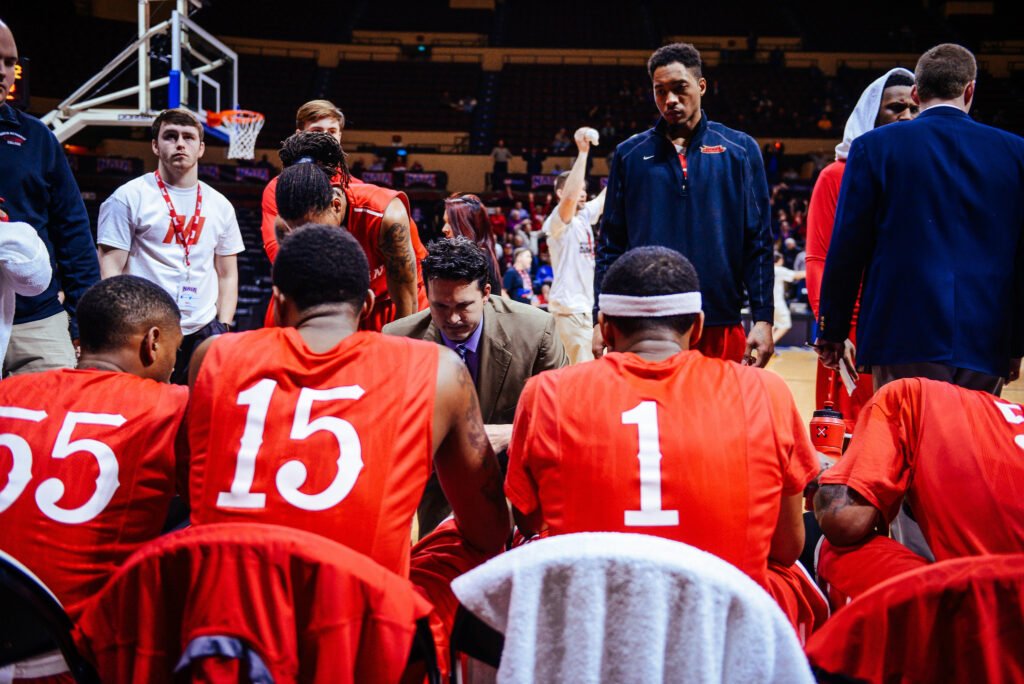Basketball
HOW TO BREAK DOWN AN OPPOSING DEFENSE IN 5 EASY STEPS
I’ve been fortunate to work for a couple of coaches who put an emphasis on opponent scouting. We broke scouting into three categories: offense, defense and personnel. Leading up to the season, we’ll go in-depth into each of these areas, starting with the opponent’s defense.
The opposing coach has the ability to change their defensive approach for a particular matchup. But in most circumstances, you’ll need to scout a few games to determine how the other team defends and which offense will give you the best chance for success.
There are five important questions to ask when scouting an opponent’s defense.
1. What’s their primary defense?
In order to practice how we’ll attack their scheme, we want to have an idea of what defense the opposing team will use for a majority of the game. For example, if we’re playing a team that primarily plays a 2 – 3 zone, we’ll spend an extra 15 – 30 minutes each day practicing zone offense. We’ll also adjust our individual offensive sessions to make sure our players are working on skills and shots they’d most likely need against that particular defense.
2. How will they guard our actions?
Now we take breaking down film a step further with a look at how they guard particular actions we’d potentially run against them. For example, if we’re a team that sets down-screens to create angles for our wings to score, we want to know how they’ll defend that action. Do they piggyback that screen? If so, we know to work on curling. Do they go third and avoid the screen? If so, we’ll work on fading during our individual offensive sessions. We want our guys to have an idea of what to expect before the action occurs, so they can be prepared to take advantage of it.
3. Do they press?
Games against pressing teams present several questions. We look to see if they’re in a man or zone press, if they’re trying to create turnovers or just trying to control the tempo and if you need to let your best passer inbound the ball. After those issues are addressed, we spend ample time in practice working on our press attack. While most high school scout teams can’t simulate an opponent’s press, you can still take away the element of surprise and give your guys the best chance at being successful.
4. How do they guard baseline out-of-bounds plays?
Over the course of a game, a team usually has between four and eight baseline out-of-bounds opportunities. We put a great emphasis on taking advantage of these situations. It’s often challenging to figure out what defense the opponent plays and make sure you have a good set for that particular defensive challenge. After you’ve studied the opposing team’s tendencies, this becomes significantly easier to handle. If a team is playing man on baseline out-of-bounds situations, we study the inbounder’s defender. Is he taking away the basketball? Is he pressuring the ball? Then we go over what action we feel will work for us.
5. How do they defend in the post?
The last scouting question we’ll cover is post defense. With so many different ways to defend in the post, we like to make our guys aware of what they’ll most likely face in the game. It’s especially important if the opposing team traps on post touches, because then we want our post players to expect the double team and have a plan for when they receive the pass.
There are many other aspects to scouting an opponent’s defense, but these are the areas we cover first. If we can answer these five questions, and prepare our guys with this information, we’ve given our team a great chance to be successful.
Source: Hudl

